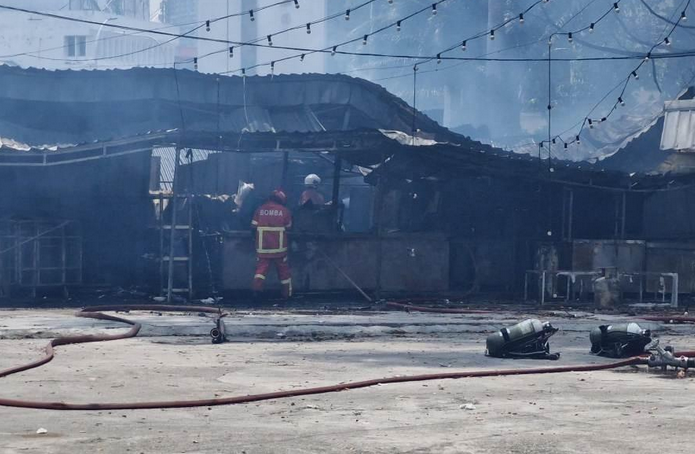KUALA LUMPUR: There will be zero tolerance for integrity breaches among Road Transport Department (JPJ) officers, following reports that certain lorry owners are using “protection stickers” to evade roadblocks and inspections, warns Anthony Loke.
The Transport Minister said since the issue involves integrity, it would need the cooperation of the Malaysian Anti-Corruption Commission (MACC).
“If it involves integrity issues, the Transport Ministry is always ready to cooperate with the MACC.
“At the same time, the Transport Ministry practises a zero-tolerance policy. We do not compromise on integrity issues,” he told a press conference after launching the TalentBridge Programme and Teater LogTech Lab at Universiti Malaya here yesterday.Also present at the press conference was Science, Technology and Innovation Minister Chang Lih Kang.
Loke was asked to comment on the report by a Malay daily that stickers were used by lorry company owners to signal to JPJ officers to let them pass any roadblock without undergoing checks.
Quoting sources, Utusan Malaysia reported that certain company owners instruct all their lorry drivers to affix specific stickers on the lorry’s cab.
“This is crucial to prevent JPJ from stopping the lorry when it’s on the road,” the source said.
According to the source, whenever these lorries travel on highways or roads, JPJ personnel will not stop the heavy vehicles.
Citing an example, Loke said that the Transport Ministry had collaborated with the MACC on a strategic partnership to expose a syndicate involved in corruption within Puspakom recently.
“The investigation is ongoing, and I am confident that the MACC will take appropriate action, including prosecution,” he said.
He said the relevant authorities will continue to monitor the situation closely, adding that the JPJ has its own intelligence unit to address the matter.
“Any intelligence that we gather, especially in areas beyond our jurisdiction, will be handed over to the MACC.
“We know there are syndicates trying to exploit loopholes to evade enforcement. That is why we believe a different approach is needed. Artificial intelligence and technology are essential because they allow us to strengthen our enforcement efforts,” said Loke.
There were also some complaints in cases of vehicle overloading, where the JPJ had reported vehicles refusing to stop and cooperate, he said.
“This is why we aim to expand the High-Speed Weigh-In-Motion system (to monitor the load of heavy vehicles).
“There will no longer be a need to take vehicles to weighing stations. Technology will provide proof of whether a vehicle is overloaded,” he said.










































